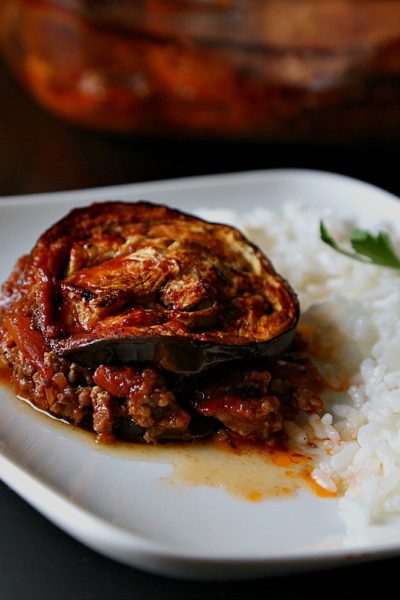Back in my twenties, I was all about eating whatever sounded good at the moment. Breakfast, lunch, dinner – it was all about satisfying those immediate cravings. I’d grab whatever looked appealing, whether it was healthy or not. This haphazard approach to eating wasn’t sustainable, especially when I started working out regularly and incorporating morning runs into my routine. I realized that to truly fuel my body and achieve my fitness goals, I needed to take control of my nutrition. That’s when I decided to start a food diary.
So why a food diary is important? I loved this article and a great sample from a blogger & dietitian I follow since forever, around 12 years!
The Power of a Food Diary

At first, I was a bit hesitant, but I quickly realized how helpful it could be.
- Increased Awareness: Tracking what I ate made me much more conscious of my eating patterns. I started to notice unhealthy habits, such as mindless snacking, skipping meals, or relying too heavily on processed foods. This awareness is the first step towards making positive changes.
- Improved Nutrient Intake: By analyzing my food diary, I began to identify any nutritional deficiencies. Was I getting enough protein, fruits, and vegetables? Was I consuming too much sugar or unhealthy fats? A food diary provides valuable insights into your overall nutritional intake, helping you ensure you’re getting the essential nutrients your body needs.
- Weight Management: While weight wasn’t my primary goal, tracking my food helped me understand how different foods impacted my energy levels and overall well-being.
- Enhanced Performance: For athletes and fitness enthusiasts, a food diary can help optimize performance. By identifying the foods that provide sustained energy and support recovery, you can fuel your body for optimal athletic performance.
- Better Health Outcomes: By making conscious food choices and addressing any nutritional deficiencies, you can improve your overall health. A well-rounded diet can reduce the risk of chronic diseases, boost your energy levels, and improve your mood.
A Glimpse into My Food Diary
Please note that where I live, lunch is the main meal of the day. This is reflected in the sample food diary entries below.
To illustrate the power of food journaling, here’s a typical day from my own food diary:
Before Workout (6:00 AM – 7:00 AM):
A small banana and a 1/2 cup of black coffee to get me going.
Breakfast (Post-Workout):
2 boiled eggs, 1 Tb olive oil, and 1 slice of Reef bread.
Or for a another option: my Healthy Potato Hash with Fried Egg recipe:
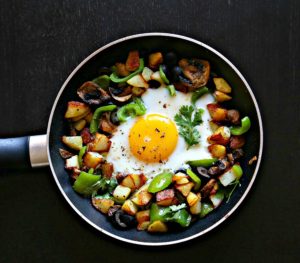
Snack 1:
1 Reef bread with 1/Tb labneh (fermented yogurt spread), 1/2 Tb olive oil, and 1 tsp za’atar.
(See recipe for Labneh🙂
OR
Snack 2: My favorite green smoothie /
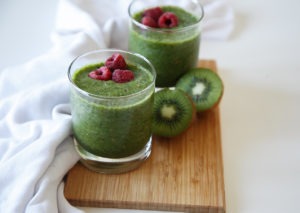
Lunch (Main Meal):
A plate of Jew’s mallow soup with white rice and chicken thigh (boiled then pan-fried with a little olive oil) (See recipe for Jew’s Mallow Soup: /)
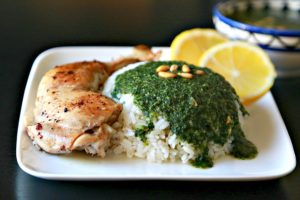
OR: Easy Chicken Curry with Coconut Milk [/]
Dinner:
Crunchy Red Beans Salad (See recipe: http://www.nutrizonia.com/red-beans-salad/recipes/)
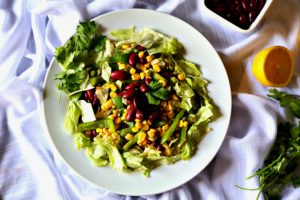
Foods to Focus On:
- Prioritize: Whole grains, fruits, vegetables, lean protein, and healthy fats.
- Examples:
- Whole grains: Brown rice, quinoa, oats, whole-wheat bread
- Fruits: Berries, apples, bananas, oranges
- Vegetables: Spinach, broccoli, carrots, sweet potatoes
- Lean protein: Chicken, fish, beans, lentils, tofu
- Healthy fats: Avocado, nuts, seeds, olive oil
- Examples:
- Limit: Processed foods, sugary drinks, and excessive amounts of unhealthy fats.
- Examples:
- Processed foods: Fast food, packaged snacks, sugary cereals
- Sugary drinks: Soda, juice, sweetened tea
- Unhealthy fats: Fried foods, butter, margarine.
- Examples:
Do you use a food diary?
Conclusion:
Starting a food diary was one of the best decisions I made for my health. It’s a simple yet powerful tool that has helped me become more mindful of my eating habits, improve my overall nutrition, and feel better overall.
I encourage you to give it a try – you might be surprised at how much it can help you on your own health journey.
What are your thoughts on food journaling? Have you ever tried keeping a food diary? What were your experiences?
I’d love to hear from you in the comments below. Please share this blog post with your friends and family, and let’s start a conversation about the power of mindful eating!




